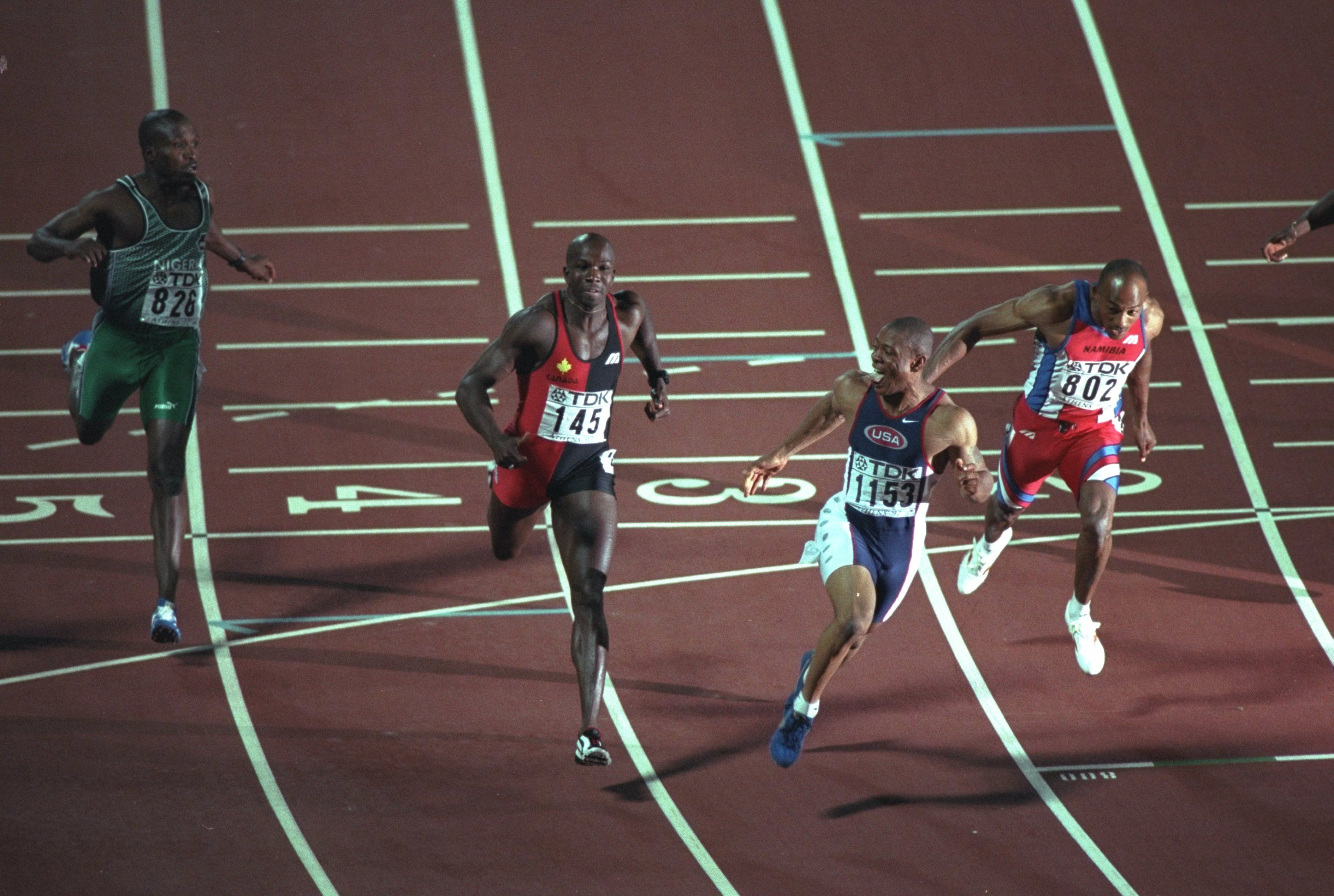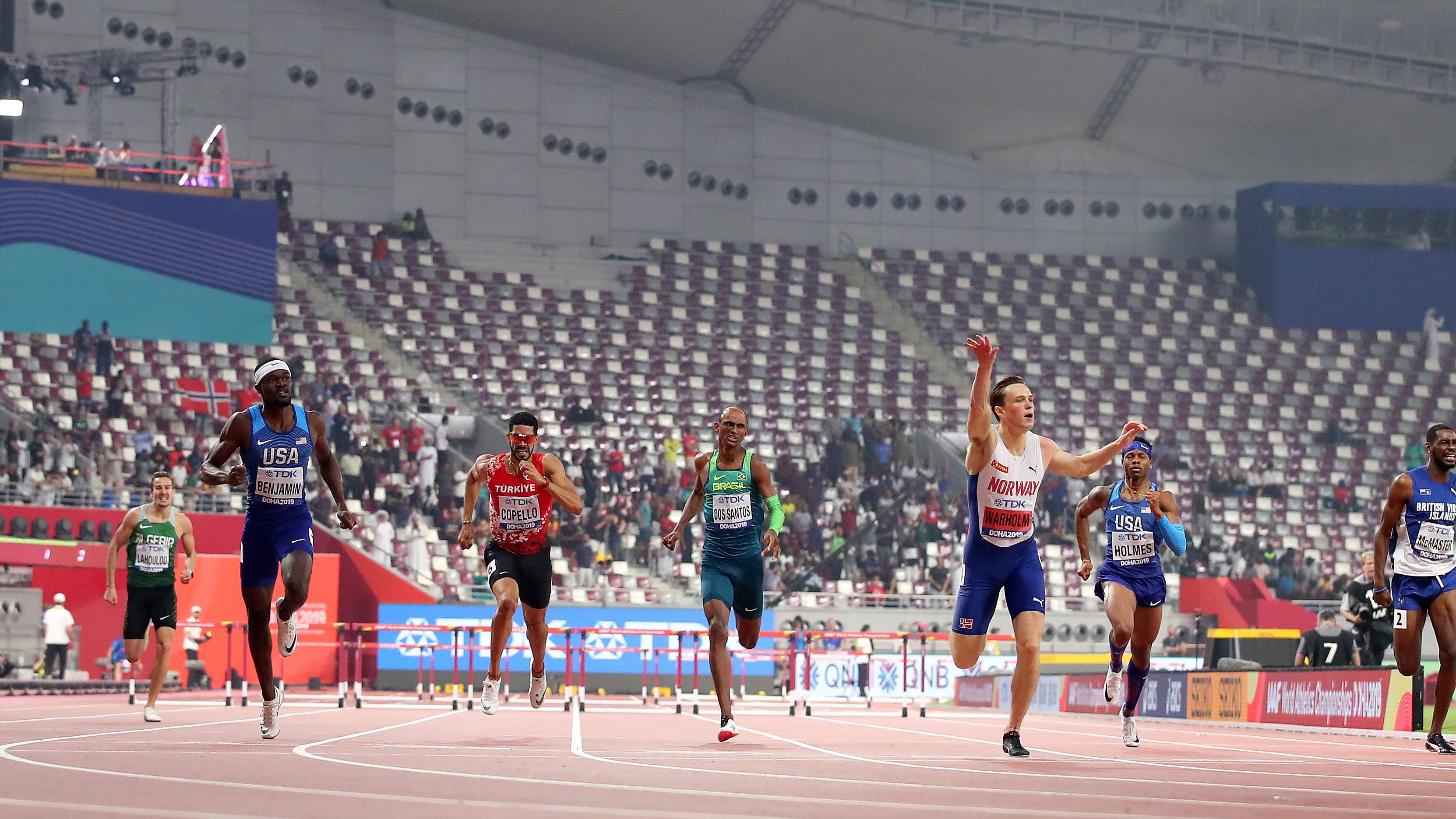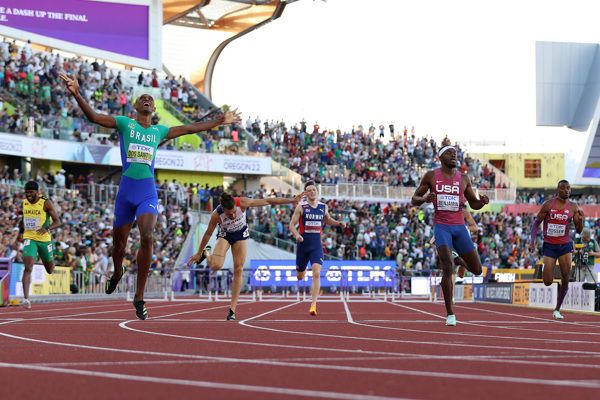As the countdown to the World Athletics Championships Tokyo 25 gathers pace, we turn the spotlight on some of the rivalries that have defined past editions of the prestigious global event.
This four-part series kicks off with a look at some of the most compelling showdowns that have shaped the men’s track events over the years.
Men’s 10,000m: Gebrselassie vs Tergat
The men’s 10,000m in the 1990s was marked by fierce competition and produced some of the most memorable moments of that era’s World Championships.
With four victories in five races leading up to the 1995 World Championships in Gothenburg – including a stunning world record of 26:43.53 set in Hengelo – Haile Gebrselassie’s form was formidable, especially considering that Paul Tergat was only making his 10,000m season debut in Gothenburg.
In the final, Kenya’s Tergat set the pace for much of the race, but Ethiopia’s Gebrselassie bided his time before unleashing a decisive kick with just under two laps remaining. He stormed to his second consecutive world title in the event, clocking a championship record of 27:12.95. Morocco’s Khalid Skah edged past Tergat for silver in 27:14.53, while the Kenyan settled for bronze in 27:14.70.
Paul Tergat and Haile Gebrselassie in the 1995 world 10,000m final in Gothenburg (© Getty Images)
Gebrselassie continued his dominance into 1997, winning 14 out of 16 races that year. At the World Championships in Athens, the Ethiopian once again timed his kick to perfection with two laps to go to win in 27:24.58. Tergat improved on his previous finish by taking silver in 27:25.62, while Morocco’s Salah Hissou claimed bronze with a lifetime best of 27:28.67.
However, Tergat would have his moment of redemption a couple of weeks later, when he shattered Gebrselassie’s world record, clocking a superb 26:27.85 in Brussels.
The familiar foes renewed their battle at the 1999 World Championships in Seville. Gebrselassie employed his signature strategy, staying tucked within the lead pack before surging on the final lap to claim gold in 27:57.27, while Tergat, in a gritty finish, outkicked both Assefa Mezgebu and Girma Tola to take silver in 27:58.56. Mezgebu completed the podium in 27:59.15.
Men’s 100m: Greene vs Bailey
The men’s 100m has long been one of the marquee events at the World Championships, and the 1990s delivered plenty of thrills, drama, fierce rivalries and unexpected twists.
Heading into the 1997 edition in Athens, Canadian sprinter Donovan Bailey appeared poised to retain his title. Fresh off his stunning gold medal performance at the Atlanta 1996 Olympics – where he set a world record of 9.84 – Bailey started as the favourite.

Maurice Greene beats Donovan Bailey to the 1997 world 100m title in Athens (© Getty Images)
In contrast, Maurice Greene’s résumé at the time lacked major accolades – he had failed to progress beyond the quarterfinals at the 1995 World Championships and didn’t make the US team for the Atlanta Games. But 1997 would mark the beginning of his meteoric rise on the global stage.
The two athletes were drawn in the same semifinal, where Greene narrowly edged Bailey with a sharp 9.90 performance – just 0.01 ahead of the Canadian.
The final lived up to its billing as a showdown for the ages. With Greene in lane three and Bailey beside him in lane four, Greene exploded out of the blocks with a powerful start and maintained his lead to the finish, clocking a personal best of 9.86. Bailey followed closely in 9.91 to claim silver, while Tim Montgomery secured bronze in 9.94.
Greene’s victory in Athens signalled the start of his era of dominance in the 100m, as he would go on to retain his world title in both 1999 and 2001, and win Olympic gold in 2000.
Men’s 400m hurdles: Warholm vs Benjamin vs Dos Santos
The three fastest men in the history of the 400m hurdles are poised to deliver another thrilling showdown when they line up at the 2025 World Championships in Tokyo.
Norway’s world record-holder Karsten Warholm, the first athlete to win three world titles in the 400m hurdles (2017, 2019 and 2023), struck gold in 47.42 when the trio first went head-to-head at the 2019 World Championships in Doha. USA’s Rai Benjamin followed closely in 47.66, while Brazil’s Alison dos Santos placed seventh with a then-personal best of 48.28.

Rai Benjamin, Alison dos Santos and Karsten Warholm clash in the world final in Doha (© Getty Images)
The tables turned at the next edition of the World Championships in Oregon. Dos Santos emerged as the man to beat, having clocked a world lead of 46.80 at the Stockholm Diamond League and been a dominant force throughout the season.
Drawn in lane six and without his main rivals in view, the Brazilian attacked the race aggressively from the start and stormed to victory in a championship and area record of 46.29. Benjamin secured his second straight silver medal in 46.89 as Warholm finished seventh.
The 2023 season saw the Norwegian return to top form, reclaiming his world title in Budapest after an unbeaten run throughout the year. He surged ahead in the final 100 metres to take gold in 46.89. Kyron McMaster edged past Benjamin to claim silver in 47.34, while Benjamin got bronze and Dos Santos finished fifth.
As the countdown to Tokyo intensifies, the stage is set for another thrilling chapter in this rivalry. Benjamin, who won the Olympic title in Paris last year ahead of Warholm and Dos Santos, currently leads the world top list with 46.54, followed by Dos Santos (46.65), Abderrahman Samba (47.09), and Warholm (47.28). With Benjamin the only one among the trio yet to claim a world 400m hurdles title, he’ll be hoping this is the year the stars align in his favour.
Yemi Galadima for World Athletics
